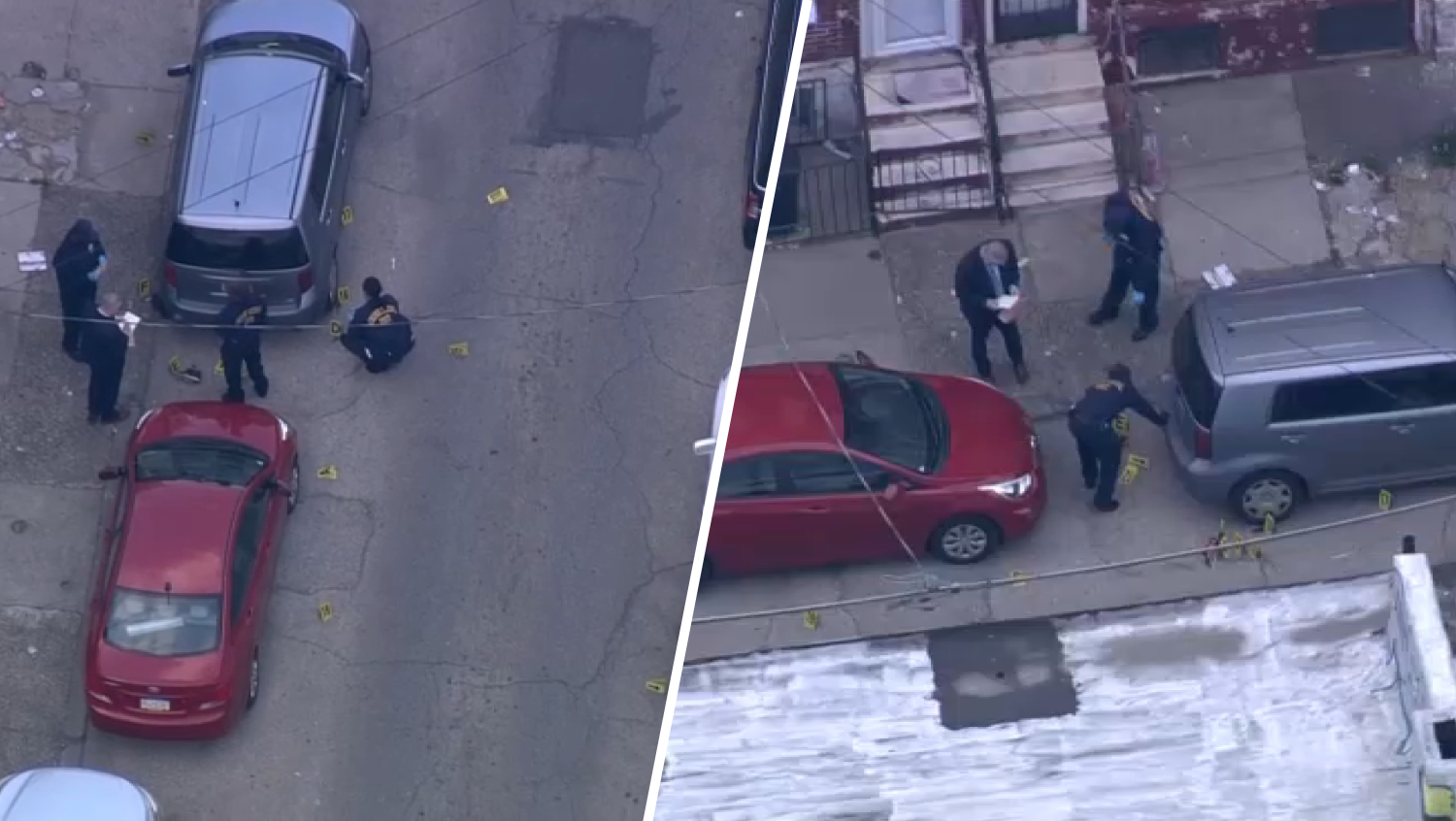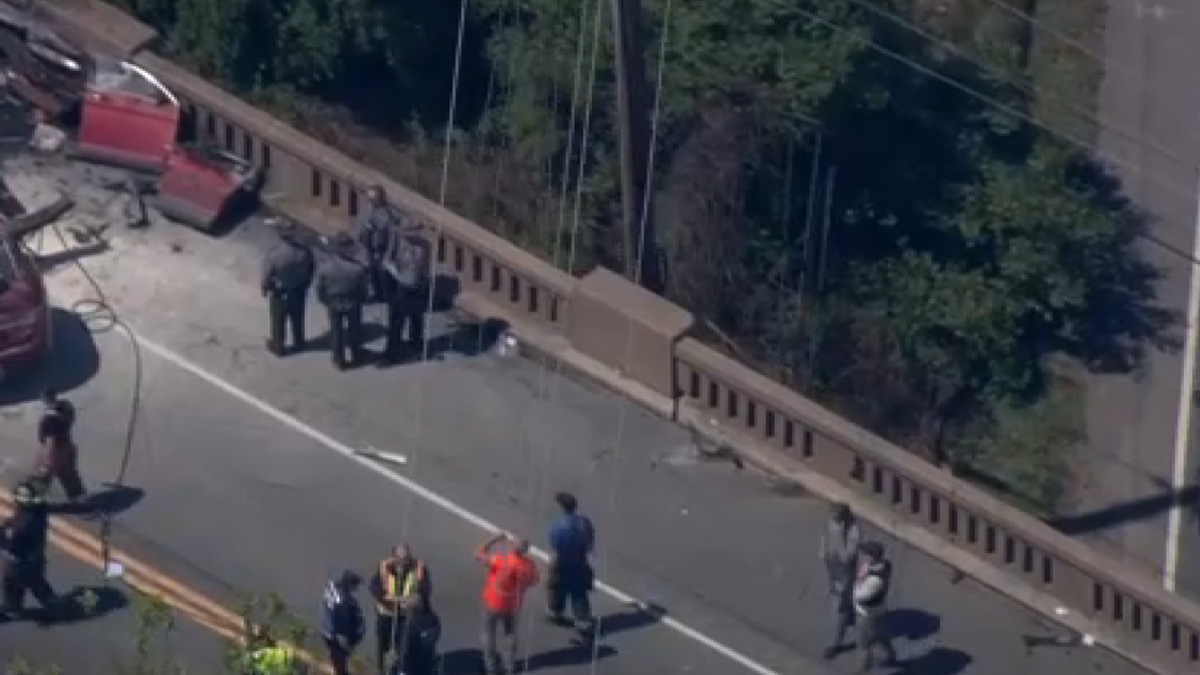"They had to have seen the blood.''
Bridgette Rooks began a frantic search in her Atlantic City neighborhood. Her 34-year-old son, Garry Williams, wasn't responding to her texts.
She found police on a street corner. They didn't see the blood, but Rooks did, she said.
Then she saw her son dead in a nearby alley.
On Feb. 22, 2016, Rooks joined the growing pool of South Jersey mothers who have lost children to gun violence.
Atlantic County had 21 homicides in 2015. There were 20 last year. There have been six so far this year, five of them in Atlantic City.
Kellie Cors-Atherly knows the feeling well.
Local
Breaking news and the stories that matter to your neighborhood.
Her 13-year-old son, Todd Mitchell, was shot and killed in Pleasantville in 2012.
In January 2016, Cors-Atherly came up with the idea to start a group that would provide an outlet for the grieving families of South Jersey, and Peace Amongst Youth Inc., her nonprofit, was born.
According to Rooks, a group made specifically to help families affected by shootings was needed.
"We were told there was a waiting list for counseling,'' Rooks told The Press of Atlantic City. "I've called. They don't even return your calls.''
So Cors-Atherly, Rooks and other mothers are looking for a way to break the cycle of violence in South Jersey. With other children to care for, many of them teenagers or younger, falling into despair because of the murder of one of their children wasn't an option.
Cors-Atherly wanted not only to help curb the violence but help the remaining siblings, cousins and friends of the victim.
In her experiences with her children, she said area school counselors generally are not qualified to handle the trauma of grief following gun violence. Families may live in fear of retaliation, relocate, put up security cameras or move their remaining children into new schools.
"I went to The Alcove, I went to counseling, but I felt like I was the only one in the room. To speak out and say, 'I'm the mother of a 13-year-old that was murdered,' it's kind of hard.''
The Alcove, a grief counseling center in Northfield, has been working to help children and families manage grief since 2001. Executive Director Mindy Shemtov said Alcove counselors have partnered with 22 schools since school counselors often are not as versed in grief counseling following a shooting.
"To be living with trauma untreated often leads to depression, anxiety and substance abuse,'' Shemtov said.
Cors-Atherly created Peace Amongst Youth to take on the aftermath of shootings specifically. She wants to teach communities about laws and programs to protect witnesses, and that in some cases, families who have lost loved ones to these crimes can be compensated.
Many families may never see an arrest in the killing of their relative. Brothers, sisters and cousins may be afraid assailants will return. They grieve and await justice at the same time. Investigations into the killings of Rooks' son are continuing.
And Cors-Atherly still fears for her family. She said her 9-year-old son, Ty'Kell Holloway, has been teased at school for wearing a memorial shirt with Mitchell's picture on it.
Her family was given some level of closure, however, when 19-year-old Abubaka Brown, of Atlantic City, was charged with her son's murder.
Jamilah Muhammad is another relative of a victim who was shot to death, whom Cors-Atherly has taken under her wing. She was 11 the night she heard the gunshots in Atlantic City that killed her 25-year-old cousin.
"I didn't know what was going on, and then I heard, `It was your cousin,''' Muhammad said. "I didn't know what to do. I was still young. I'd never been in a situation like this.''
The now 17-year-old said she was too young to know how to distract herself.
"He was the only boy I was close to,'' Muhammad said.
Pleasantville Police Capt. Matt Hartman said law enforcement understands the fear surrounding the shooting of a loved one and that it is a real concern. He said families and witnesses can work with the Atlantic County Prosecutor's Victim and Witness Advocacy programs to be protected.
"Unwillingness due to a no-snitching mentality is especially frustrating for investigators,'' Hartman said. "We want to bring the perpetrators to justice and bring closure to these families.''
The more help families can immediately give to the police, the higher the chance of an arrest.
But in the face of tragedy, that can be a struggle.
"When the cops found out it was my cousin, so many of them came to me,'' Muhammad said. "They were asking for his mom's number, cousins' numbers... I was not thinking about giving out numbers. I just saw him lying on the ground and didn't know what to do.''
The flurry of grief is still fresh in Danielle Fletcher's mind.
"These past five months have been hell for me,'' Fletcher said.
Her 17-year-old son, K'vaun Wyatt, was shot and killed Oct. 30 in Atlantic City.
She spoke of Wyatt on a recent Wednesday, sporting a T-shirt featuring a photo of his young face looking off into the distance. Two of her younger sons, Kyrell, 12, and Kory, 7, also wear sweatshirts featuring their brother.
Fletcher remembers bringing Wyatt home from the hospital on her birthday. He died on his brother Kyrell's birthday.
"Kyrell was 11, and for the rest of his life, on that day, he'll remember he lost his older brother,'' Fletcher said.
Fletcher said for her, the smallest of things will remind her she lost her teen. Her shopping cart looks less full with one less child to feed. She now bypasses Wyatt's favorite foods.
But her main concern is for her older son, who looked for counseling following the shooting but is now incarcerated, and her young boys who have lost interest in school. Kyrell's high grades of A's have dropped to C's, and he recently received his first F.
"I'm dealing with his feelings and his emotions, but he's bottling up everything. We're going to family counseling, but it only goes so far,'' Fletcher said. "He said, 'Mom, there's a blur in school.''' He doesn't want to go anymore. He's lost interest.''
Most mothers say the counseling groups that do exist in Atlantic and Cape May counties largely aren't of help to their families because of the restrictions stacked against them. Any sort of unrelated charges, pending or convicted, can impede families from getting help, they said. They fear the cycle could continue.
"By the time they are 18, they feel like they don't have a chance,'' Cors-Atherly said. "They're going to find the next weed, the next pill, the next syrup. There's nothing out here for these babies.''
So Cors-Atherly is working toward opening a counseling center in Atlantic County without charge restrictions.
"They have to be able to let it out,'' she said. "Grief and depression are silent killers.''



